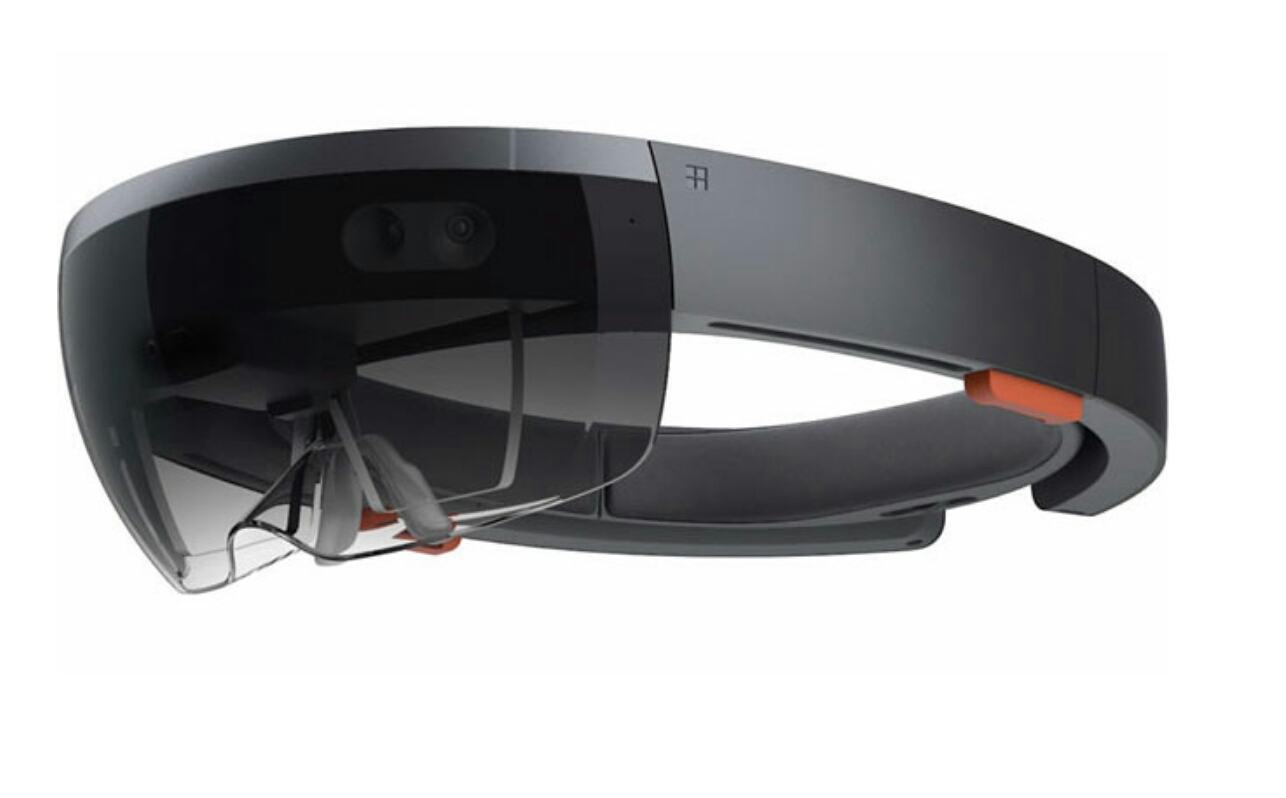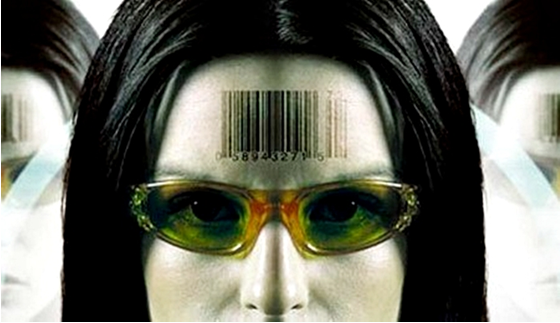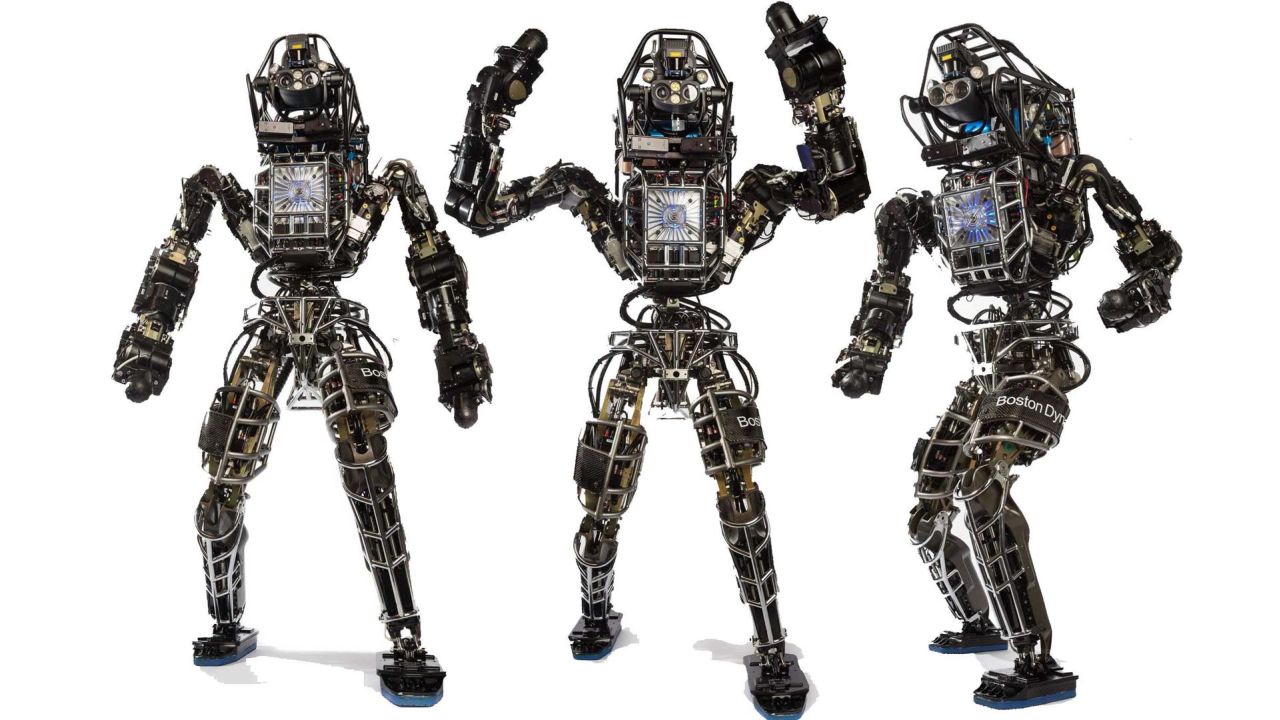Is there a place for a man in the computer future
It is governed by one who correctly predicts.
Each of us controls our life worse or better. And professional managers know that the one who manages the horizon further and the planning is more accurate manages more efficiently.
The interaction of man and computer in modern society, in the era of information, is of particular importance, and the question itself is of particular importance, and the content of this future depends on how accurately we predict our possible options for future development.
We decided to take a fresh look at the situation and analyze the potential of the most discussed options for the development of information technologies.
Who remembers the times of Netscape?
Anyone who can recall the reasons why the more advanced Netscape browser lost the battle of Internet Explorer will recall that at that moment, namely in the mid-90s, analysts disagreed on how the Internet would develop and how the Internet would be arranged through three five years. The community has heatedly debated about the future architecture of computer communications. Then Microsoft relied on the webtop architecture, took a chance and won.
Today, the information technology industry seems to be facing a similar moment. There are debates about how the user experience will look in five years, where traffic will go, what technologies will be in demand, which sites will work, and so on.
The future business results of companies and even, possibly, entire industries again depend on who guesses and who misses.
Scenario 1. Mobility above all

A very popular hypothesis today is the assumption that in 2-3 years all traffic and all user actions will irrevocably go to the "mobile". This implies that businessmen will make decisions about cooperation with business partners by plowing thumb sites on their mobile and sending their applications to mobile widgets.
Status now:contrary to the assumptions of the mobile evangelists, today there is a fairly clear separation between the ways or sales scenarios of B2C and B2B. When selling in B2C, mobile traffic gives the result in the form of real sales. When sold in B2B, mobile technologies, at best, serve as the “frontend” of a progressive company that cares about the convenience of communicating with it and tracks trends. However, so far the mobile story has not received convincing implementation as a sales channel in B2B. Correct me if I'm wrong.
What hinders domination: the scenario of “universal mobilization”, in our opinion, is hindered by the fact that complex services, in particular B2B services, cannot be sold at least somehow effectively through a “mobile”.
Scenario 2. Three-dimensional Augmented Reality

The idea of three-dimensionality has taken its strong place in the ranks of information technology in the two-dimensional era. So, even on two-dimensional screens, three-dimensional design, a 3D image, and a cubic representation of data have spread widely.
The state of affairs now: Having appeared in the 2000s, the trend is developing successfully. A number of gesture recognition devices have already been successfully commercialized, KINECT technology is being widely mastered in all new devices, holographic image presentation technologies have been developed, leading world IT corporations are investing huge amounts of money in creating three-dimensional data presentation technologies.
What prevents domination:These technologies obviously have one understandable limitation: they all require enough space for themselves to be convenient to use. In addition, the three-dimensional representation and control of objects has another genetic vulnerability: in order to be technically possible, such a technology must be very sensitive, and it is this sensitivity that can make its use inconvenient.
An important limitation for the mass distribution of technologies for three-dimensional presentation and data management can be smog in cities, especially in Asia. Those who have been to Delhi or Beijing will agree with the very vague promising three-dimensional images in Asian air.
Scenario 3. Computer-human society

We can all become androids, a certain social group of a globalized community claims. Freak radicals throw videos of their experiments on YouTube with the implantation of individual components of the computing iron on Youtube. Chipization has already captured a significant share of world passports, has spread to domestic animals and is actively promoted, for example, in the USA.
What is there to argue! Let us recall the textbook footage of Neo’s first virtual fight with Morpheus, when Neo, with somewhat puberty joyful pride, said to an experienced mentor: “I know kungfu.”
Status now:For many cyber freaks, geeks, gamers, IT autists, the quote “I know kungfu” and along with it the ideas of androidization-chipization became a propaganda slogan, a hypnotizing mantra, prompting them to experiment with their careers, with their social environment, with their consciousness and even with your body.
Whether androidization will really become a mass trend, of course, time will tell, but there is sufficient reason to believe that this trend, like many other fashion trends, will obey the law of normal distribution.
What prevents domination:for ten to twenty years, that is, a nanosecond by the standards of the Universe, android people who voluntarily appear can appear on the social scene, show their advantages, fully expose their shortcomings and, like hippies of the 70s of the twentieth century, be digested by the intellectual knowledge of society. The idea of implanting a chip that gives superpowers for every rational person implies the idea that this chip can be turned off or detonated right in the head.
But does anyone remember how crusaders were once wildly popular in Europe?
Scenario 4. Robot Society

Finally, the already mentioned film "The Matrix", and a number of other films before it, considers the motive of society under the dictates of robots and computers. World exchanges are now controlled by robot programs, time is counted by a computer, the army uses drones and anthropomorphic robots, not to mention the automation of the production of goods.
If humanity once loses its mind, then losing control of life, giving it to artificial intelligence, will be a real alternative. And then the technological path of development and the natural self-destruction of civilization can also be real.
The state of affairs now: the famous company Boston Dynamics recently introduced to the public its Atlas, a humanoid robot.
What prevents domination:the mind of a healthy part of humanity suggests that it is reasonable to have fears of the complete freedom of artificial intelligence.
Scenario 5. Flexible portable devices with thought control

So, imagine. In one city, we are pleased to expand our desktop in all its three-dimensional convenience and magnificence, and in another city you can look at it only through the narrow window of a mobile gadget. Imagine that machines can understand not only our gestures, but also thoughts. And while all these functions are still in different technologies and devices.
Remember, once, more recently, roomy music players, surfing devices on the Internet, and calling devices were sold in the form of three different types of devices?
The development of information technology clearly indicates that sooner or later the main computer device will be a compact mobile device capable of presenting data in a three-dimensional way in air, on its screen surface or on any flat surface around, at the request of the owner. And this device will be controlled by touch, gestures and thoughts.
The future new outstanding IT company, which will again change the user experience, will produce supercompact mobile computers-projects with touch, gesture and thought management.
What sales technologies will look like in the computer infrastructure of the future
If the development of computer technology avoids the deadlock of androidization, it will cope with the risk of losing control over robots and understand that mobile two-dimensionality limits it, if portable devices appear that can flexibly display data in 2D and 3D, then new horizons will open up for sales technologies.
Here are five of the possible trends that we think will soon become a reality.
1. Selling sites will use three-dimensional virtual assistants with artificial intelligence, which will help you navigate the site and answer questions. Some companies will take famous models to create them, and some will take their employees. To increase the depth of views and increase the conversion of the site, these three-dimensional virtual assistants will be widely used, actively and sensibly advising visitors.
2. Sites will receive a new function “show on air” - a button for switching the display from two-dimensional on the screen to three-dimensional in the air or in your stereo glasses.
3. A new file format for three-dimensional brochures displayed in the air or in stereo glasses will appear.
4. When presenting products, three-dimensional animation and the “passax effect” will be widely used with the ability to “twist” a thing in front of you and, if necessary, disassemble it into parts.
5. For a short time, abandoned basket services can become popular, providing calls to visitors with an abandoned basket on behalf of a three-dimensional virtual assistant. For some time this will give a wow effect, but will quickly cause a negative, because the robot can never reproduce the warmth of human communication. The appearance of a stable negative connotation in the expression “virtual assistant” and negative expressions of the type 'vAss' is not excluded.
The person
chooses the good news. Our future we choose. It is each person who, with his choice, will vote for a particular development path.
At this point, it is especially important that everyone remembers what it means to remain human.
Each of us controls our life worse or better. And professional managers know that the one who manages the horizon further and the planning is more accurate manages more efficiently.
The interaction of man and computer in modern society, in the era of information, is of particular importance, and the question itself is of particular importance, and the content of this future depends on how accurately we predict our possible options for future development.
We decided to take a fresh look at the situation and analyze the potential of the most discussed options for the development of information technologies.
Who remembers the times of Netscape?
Anyone who can recall the reasons why the more advanced Netscape browser lost the battle of Internet Explorer will recall that at that moment, namely in the mid-90s, analysts disagreed on how the Internet would develop and how the Internet would be arranged through three five years. The community has heatedly debated about the future architecture of computer communications. Then Microsoft relied on the webtop architecture, took a chance and won.
Today, the information technology industry seems to be facing a similar moment. There are debates about how the user experience will look in five years, where traffic will go, what technologies will be in demand, which sites will work, and so on.
The future business results of companies and even, possibly, entire industries again depend on who guesses and who misses.
Scenario 1. Mobility above all

A very popular hypothesis today is the assumption that in 2-3 years all traffic and all user actions will irrevocably go to the "mobile". This implies that businessmen will make decisions about cooperation with business partners by plowing thumb sites on their mobile and sending their applications to mobile widgets.
Status now:contrary to the assumptions of the mobile evangelists, today there is a fairly clear separation between the ways or sales scenarios of B2C and B2B. When selling in B2C, mobile traffic gives the result in the form of real sales. When sold in B2B, mobile technologies, at best, serve as the “frontend” of a progressive company that cares about the convenience of communicating with it and tracks trends. However, so far the mobile story has not received convincing implementation as a sales channel in B2B. Correct me if I'm wrong.
What hinders domination: the scenario of “universal mobilization”, in our opinion, is hindered by the fact that complex services, in particular B2B services, cannot be sold at least somehow effectively through a “mobile”.
Scenario 2. Three-dimensional Augmented Reality

The idea of three-dimensionality has taken its strong place in the ranks of information technology in the two-dimensional era. So, even on two-dimensional screens, three-dimensional design, a 3D image, and a cubic representation of data have spread widely.
The state of affairs now: Having appeared in the 2000s, the trend is developing successfully. A number of gesture recognition devices have already been successfully commercialized, KINECT technology is being widely mastered in all new devices, holographic image presentation technologies have been developed, leading world IT corporations are investing huge amounts of money in creating three-dimensional data presentation technologies.
What prevents domination:These technologies obviously have one understandable limitation: they all require enough space for themselves to be convenient to use. In addition, the three-dimensional representation and control of objects has another genetic vulnerability: in order to be technically possible, such a technology must be very sensitive, and it is this sensitivity that can make its use inconvenient.
An important limitation for the mass distribution of technologies for three-dimensional presentation and data management can be smog in cities, especially in Asia. Those who have been to Delhi or Beijing will agree with the very vague promising three-dimensional images in Asian air.
Scenario 3. Computer-human society

We can all become androids, a certain social group of a globalized community claims. Freak radicals throw videos of their experiments on YouTube with the implantation of individual components of the computing iron on Youtube. Chipization has already captured a significant share of world passports, has spread to domestic animals and is actively promoted, for example, in the USA.
What is there to argue! Let us recall the textbook footage of Neo’s first virtual fight with Morpheus, when Neo, with somewhat puberty joyful pride, said to an experienced mentor: “I know kungfu.”
Status now:For many cyber freaks, geeks, gamers, IT autists, the quote “I know kungfu” and along with it the ideas of androidization-chipization became a propaganda slogan, a hypnotizing mantra, prompting them to experiment with their careers, with their social environment, with their consciousness and even with your body.
Whether androidization will really become a mass trend, of course, time will tell, but there is sufficient reason to believe that this trend, like many other fashion trends, will obey the law of normal distribution.
What prevents domination:for ten to twenty years, that is, a nanosecond by the standards of the Universe, android people who voluntarily appear can appear on the social scene, show their advantages, fully expose their shortcomings and, like hippies of the 70s of the twentieth century, be digested by the intellectual knowledge of society. The idea of implanting a chip that gives superpowers for every rational person implies the idea that this chip can be turned off or detonated right in the head.
But does anyone remember how crusaders were once wildly popular in Europe?
Scenario 4. Robot Society

Finally, the already mentioned film "The Matrix", and a number of other films before it, considers the motive of society under the dictates of robots and computers. World exchanges are now controlled by robot programs, time is counted by a computer, the army uses drones and anthropomorphic robots, not to mention the automation of the production of goods.
If humanity once loses its mind, then losing control of life, giving it to artificial intelligence, will be a real alternative. And then the technological path of development and the natural self-destruction of civilization can also be real.
The state of affairs now: the famous company Boston Dynamics recently introduced to the public its Atlas, a humanoid robot.
What prevents domination:the mind of a healthy part of humanity suggests that it is reasonable to have fears of the complete freedom of artificial intelligence.
Scenario 5. Flexible portable devices with thought control

So, imagine. In one city, we are pleased to expand our desktop in all its three-dimensional convenience and magnificence, and in another city you can look at it only through the narrow window of a mobile gadget. Imagine that machines can understand not only our gestures, but also thoughts. And while all these functions are still in different technologies and devices.
Remember, once, more recently, roomy music players, surfing devices on the Internet, and calling devices were sold in the form of three different types of devices?
The development of information technology clearly indicates that sooner or later the main computer device will be a compact mobile device capable of presenting data in a three-dimensional way in air, on its screen surface or on any flat surface around, at the request of the owner. And this device will be controlled by touch, gestures and thoughts.
The future new outstanding IT company, which will again change the user experience, will produce supercompact mobile computers-projects with touch, gesture and thought management.
What sales technologies will look like in the computer infrastructure of the future
If the development of computer technology avoids the deadlock of androidization, it will cope with the risk of losing control over robots and understand that mobile two-dimensionality limits it, if portable devices appear that can flexibly display data in 2D and 3D, then new horizons will open up for sales technologies.
Here are five of the possible trends that we think will soon become a reality.
1. Selling sites will use three-dimensional virtual assistants with artificial intelligence, which will help you navigate the site and answer questions. Some companies will take famous models to create them, and some will take their employees. To increase the depth of views and increase the conversion of the site, these three-dimensional virtual assistants will be widely used, actively and sensibly advising visitors.
2. Sites will receive a new function “show on air” - a button for switching the display from two-dimensional on the screen to three-dimensional in the air or in your stereo glasses.
3. A new file format for three-dimensional brochures displayed in the air or in stereo glasses will appear.
4. When presenting products, three-dimensional animation and the “passax effect” will be widely used with the ability to “twist” a thing in front of you and, if necessary, disassemble it into parts.
5. For a short time, abandoned basket services can become popular, providing calls to visitors with an abandoned basket on behalf of a three-dimensional virtual assistant. For some time this will give a wow effect, but will quickly cause a negative, because the robot can never reproduce the warmth of human communication. The appearance of a stable negative connotation in the expression “virtual assistant” and negative expressions of the type 'vAss' is not excluded.
The person
chooses the good news. Our future we choose. It is each person who, with his choice, will vote for a particular development path.
At this point, it is especially important that everyone remembers what it means to remain human.
